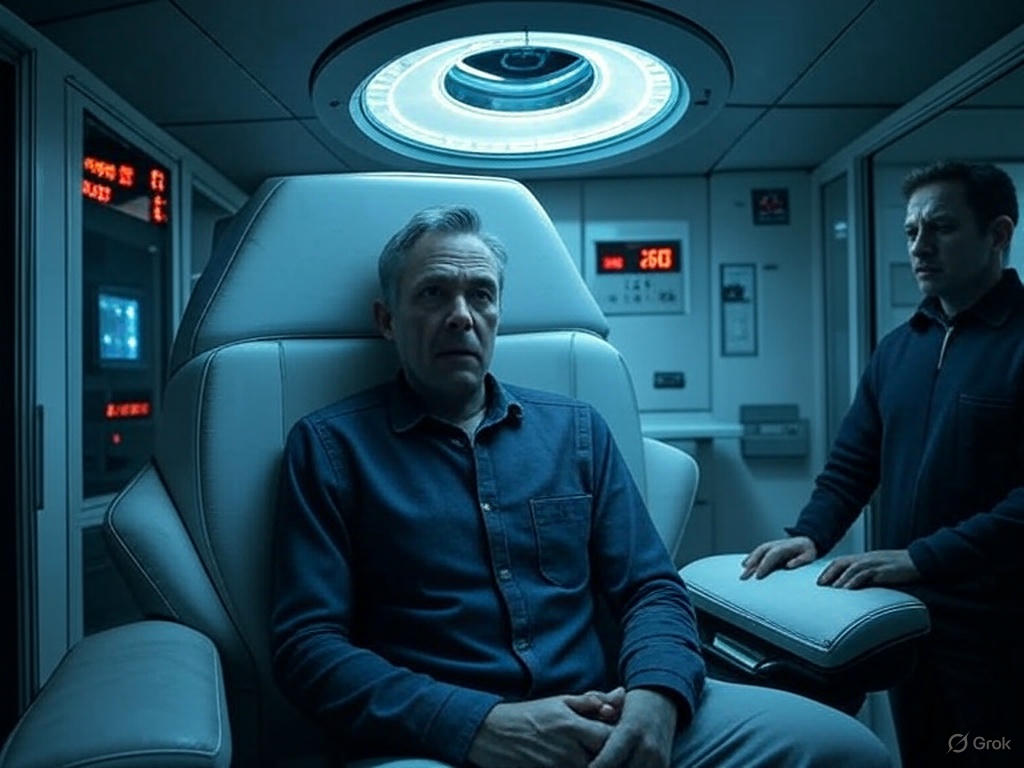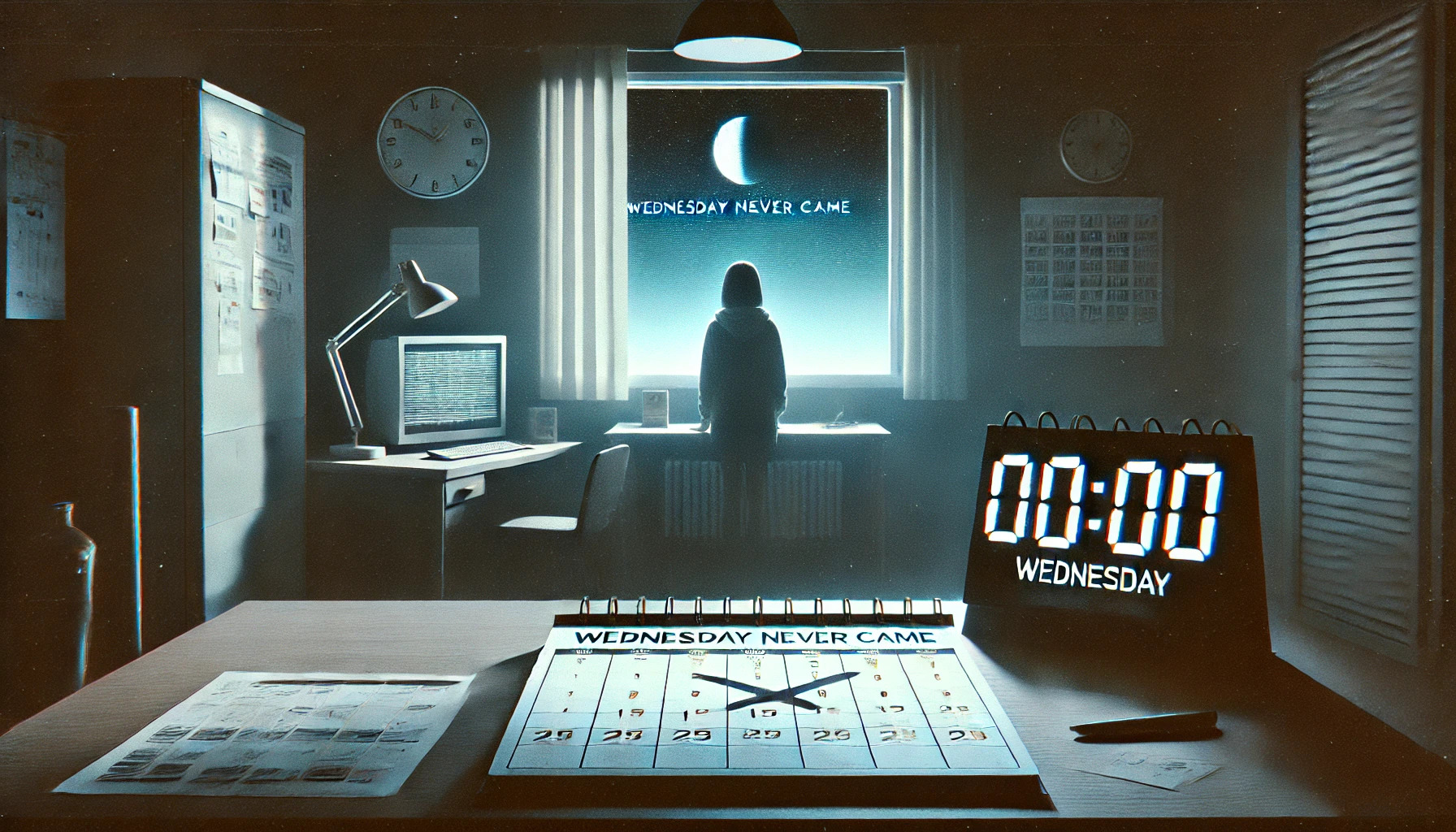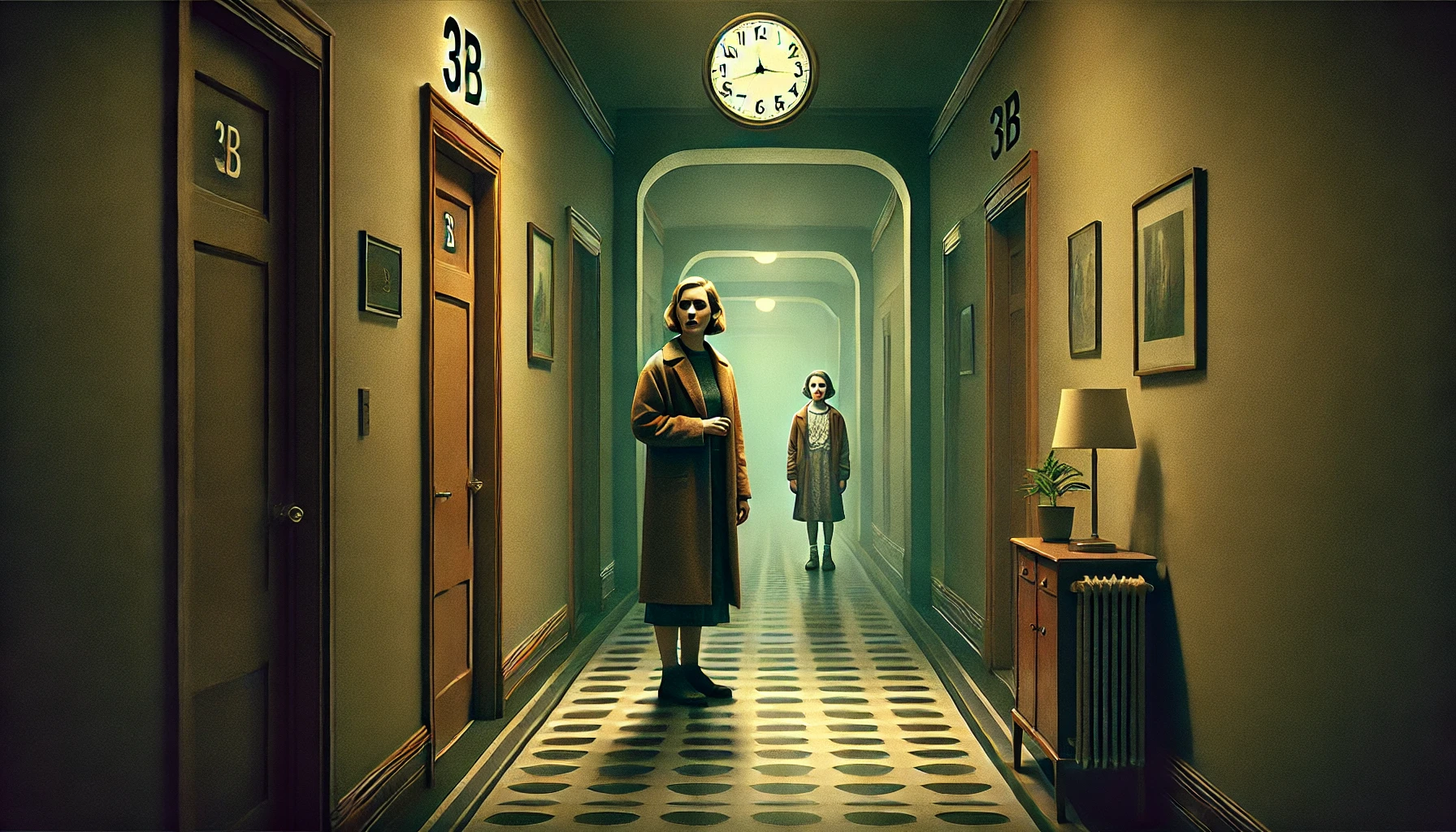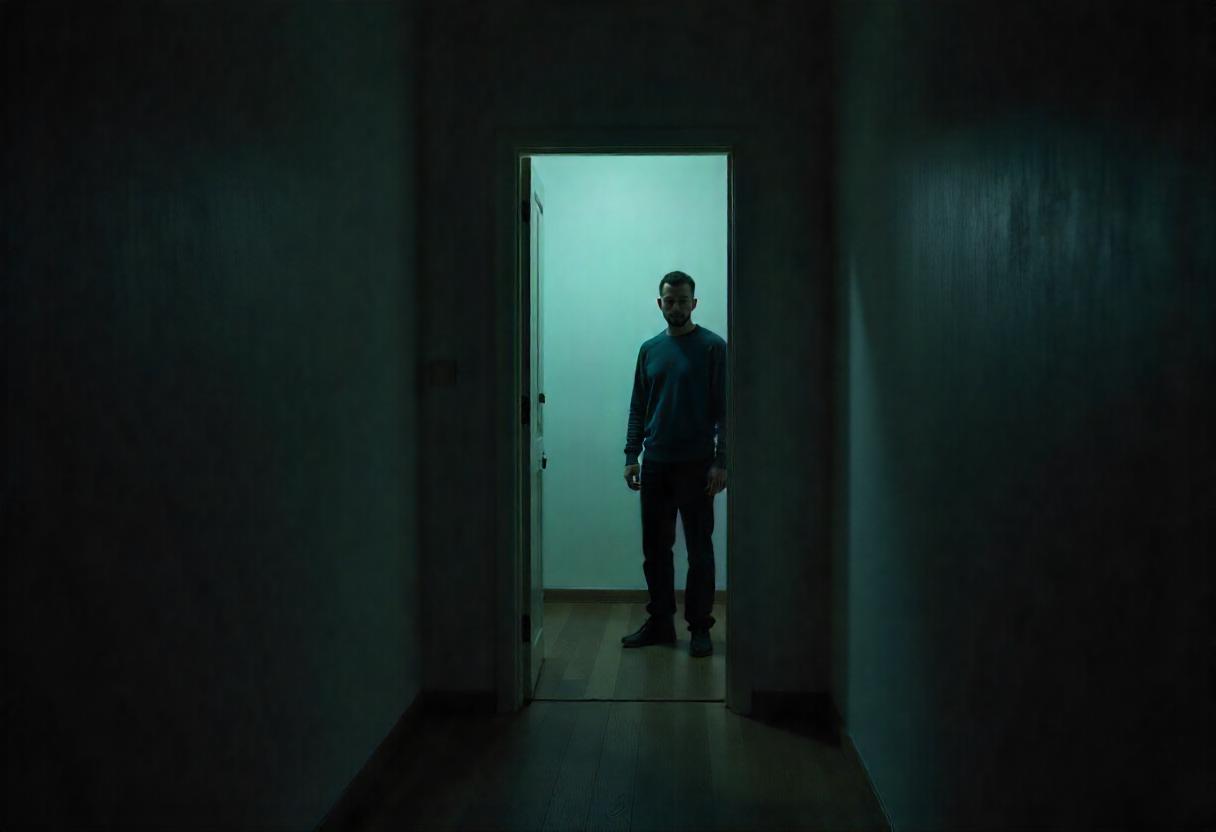
Echo Room
James entered the clinic to forget a traumatic memory—but the deeper the treatment went, the more questions surfaced. When he begins seeing reflections that aren’t his and hearing thoughts that don’t belong to him, James must decide whether to surrender his mind entirely—or risk remembering what was never meant to be recalled.
The voices stopped when James blinked.
But when his eyes reopened, the furniture had shifted two inches to the left.
He sat in the waiting room alone—again. Same dull blue walls, same digital clock frozen at 12:00. He had arrived at the clinic an hour ago, maybe two. Time moved strangely here. The receptionist had greeted him with a smile so still it seemed rehearsed. Then she disappeared behind a frosted door marked “Cognitive Re-alignment—Tier 3 Only.”
James had volunteered for the treatment. After the incident.
After the thing with the bridge. And the girl in the red coat.
But even now, he couldn't picture her face.
He rubbed his temple, fingertips tracing the small scar just above his left ear. The chip was supposed to help: “emotional rebalancing, thought stabilization, memory curation.” That’s what the brochure said.
He could no longer remember if he had read that brochure before or after the implant.
The door opened. A man in a white coat stepped in—Dr. Kell. Or someone playing the part.
“Ready, James?”
His voice was always warm. Too warm. The kind that made you forget to ask questions.
James stood, his legs stiff. “It’s happening again. Things aren’t where I left them.”
Dr. Kell didn’t blink. “That’s just adjustment. Your mind’s realigning faster than expected.”
James hesitated. “Did I ever have a sister?”
That stopped the doctor for half a second. A flicker.
“No, James. We’ve covered this.”
“But I remember her. Red coat. Standing in the snow. Screaming. Was that... real?”
Dr. Kell’s hand hovered near the wall panel. “You’re remembering an emotional proxy. Residual neural static. Let’s go inside.”
The room was cold, walls mirrored. No cameras, but James always felt watched. In the corner sat the chair. Padded, reclined, wires snaking out like nerves. Above it: a circular light that pulsed to match his breath. Or controlled it.
James sat slowly. The straps clicked shut without Kell touching them.
“James,” Kell said calmly, “do you consent to this session?”
That phrase always came. Always in the same tone.
But this time, James didn’t answer.
Instead, he stared at the wall. At the clock.
It was ticking now. 12:01.
“Dr. Kell,” James said. “If you’re fixing my thoughts... what happens to the ones you remove?”
Silence.
Then: “They fade.”
James swallowed hard. “Do they go somewhere?”
Dr. Kell tilted his head. “Only if you resist them.”
James remembered something. A flash. His sister’s face—fear, not rage. He wasn’t pushing her. He was grabbing her. Pulling her from the ledge.
But then—
White light. Screaming. Then the voices started.
“Begin sequence,” Kell said.
James looked into the mirrored wall. For the first time, he saw movement behind it.
Not his reflection.
Someone else. Wearing his face. Watching from the other side.
He smiled.
“No.”
Dr. Kell blinked. “No?”
James leaned back, calm. “I don’t consent.”
The straps unlocked.
The lights flickered.
And for the first time in weeks, he heard his own thoughts—without the echo.
He stood up. Turned to the door.
“James,” Kell said, unsure now, “you’ll lose everything. You’ll remember what you weren’t meant to.”
James opened the door.
“I know.”
But when his eyes reopened, the furniture had shifted two inches to the left.
He sat in the waiting room alone—again. Same dull blue walls, same digital clock frozen at 12:00. He had arrived at the clinic an hour ago, maybe two. Time moved strangely here. The receptionist had greeted him with a smile so still it seemed rehearsed. Then she disappeared behind a frosted door marked “Cognitive Re-alignment—Tier 3 Only.”
James had volunteered for the treatment. After the incident.
After the thing with the bridge. And the girl in the red coat.
But even now, he couldn't picture her face.
He rubbed his temple, fingertips tracing the small scar just above his left ear. The chip was supposed to help: “emotional rebalancing, thought stabilization, memory curation.” That’s what the brochure said.
He could no longer remember if he had read that brochure before or after the implant.
The door opened. A man in a white coat stepped in—Dr. Kell. Or someone playing the part.
“Ready, James?”
His voice was always warm. Too warm. The kind that made you forget to ask questions.
James stood, his legs stiff. “It’s happening again. Things aren’t where I left them.”
Dr. Kell didn’t blink. “That’s just adjustment. Your mind’s realigning faster than expected.”
James hesitated. “Did I ever have a sister?”
That stopped the doctor for half a second. A flicker.
“No, James. We’ve covered this.”
“But I remember her. Red coat. Standing in the snow. Screaming. Was that... real?”
Dr. Kell’s hand hovered near the wall panel. “You’re remembering an emotional proxy. Residual neural static. Let’s go inside.”
The room was cold, walls mirrored. No cameras, but James always felt watched. In the corner sat the chair. Padded, reclined, wires snaking out like nerves. Above it: a circular light that pulsed to match his breath. Or controlled it.
James sat slowly. The straps clicked shut without Kell touching them.
“James,” Kell said calmly, “do you consent to this session?”
That phrase always came. Always in the same tone.
But this time, James didn’t answer.
Instead, he stared at the wall. At the clock.
It was ticking now. 12:01.
“Dr. Kell,” James said. “If you’re fixing my thoughts... what happens to the ones you remove?”
Silence.
Then: “They fade.”
James swallowed hard. “Do they go somewhere?”
Dr. Kell tilted his head. “Only if you resist them.”
James remembered something. A flash. His sister’s face—fear, not rage. He wasn’t pushing her. He was grabbing her. Pulling her from the ledge.
But then—
White light. Screaming. Then the voices started.
“Begin sequence,” Kell said.
James looked into the mirrored wall. For the first time, he saw movement behind it.
Not his reflection.
Someone else. Wearing his face. Watching from the other side.
He smiled.
“No.”
Dr. Kell blinked. “No?”
James leaned back, calm. “I don’t consent.”
The straps unlocked.
The lights flickered.
And for the first time in weeks, he heard his own thoughts—without the echo.
He stood up. Turned to the door.
“James,” Kell said, unsure now, “you’ll lose everything. You’ll remember what you weren’t meant to.”
James opened the door.
“I know.”



Comments